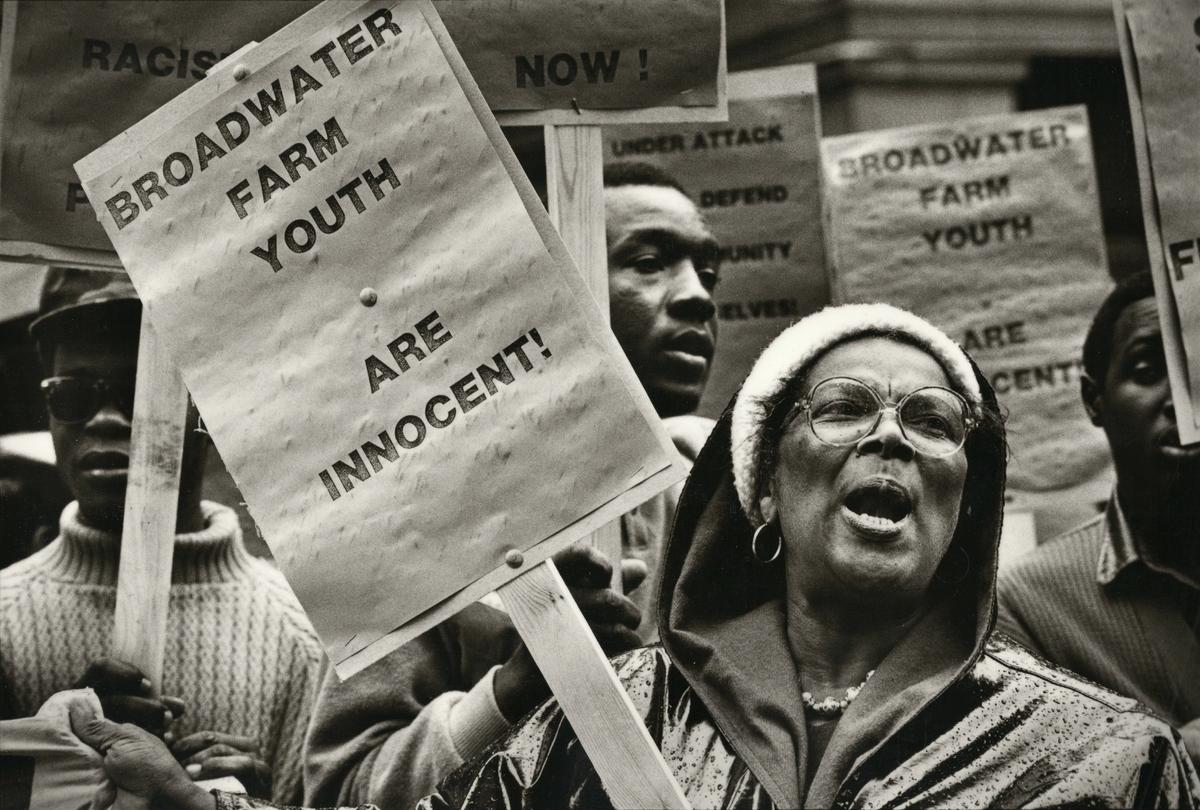After closing its doors for more than a year, the Institute of Contemporary Arts (ICA) in London reopens on 6 July with an exhibition focused on the “various forms of state violence and institutional racism targeted at Britain’s Black communities”, the organisers say.
War Inna Babylon: the Community’s Struggle for Truths and Rights (6 July-26 September) has been organised by the advocacy and community organisation Tottenham Rights, and the independent curators Kamara Scott and Rianna Jade Parker.
The show could not be more timely. In March, the Commission on Race and Ethnic Disparities published its long-awaited investigation into racial disparity in the UK. Tony Sewell, the commission chair, said: “We no longer see a Britain where the system is deliberately rigged against ethnic minorities.” The commission was set up by Munira Mirza, the policy chief for the UK prime minister, Boris Johnson.
Meanwhile, last June a review conducted by Public Health England, an agency of the UK Department of Health and Social Care, concluded that the impact of Covid-19 “replicated existing health inequalities and, in some cases, exacerbated them further, particularly for Black, Asian and minority ethnic (BAME) groups”.
Stafford Scott, the co-founder of Tottenham Rights and the exhibition co-curator, says in a statement: “In light of events over the past year, that have shown how little value is placed on Black lives—the Covid-19 Public Health England Review, Black Lives Matter demonstrations, the Sewell washout, the increased use of police violence, and stop and search procedures against members of the Black community—we view this as the perfect time to focus on grassroots activism in Black frontline communities across the UK.”
The exhibition will be accompanied by an extensive public programme presented both in Tottenham, north London, and at the ICA in Mayfair, comprising panel discussions, screenings and workshops. The Art Newspaper understands that the programme will explore a different theme each month, taken from the main topics explored in the exhibition: Miscarriages of Justice, Deaths in Custody, and Communities of Solidarity.
The programme will open in July with Miscarriages of Justice, focusing on the implications of police strategies such as Stop and Search (the power given to police to search an individual or vehicle). Within the first two weeks there will also be a series of events, looking at the “cultural and roots aspect of community, highlighting the foundational ragamuffin culture”.
The exhibition also marks ten years since the UK riots of 2011 when people took to the streets in towns and cities across England. The ICA will show an investigation by the Turner Prize-nominated art and research group Forensic Architecture into the police shooting of Mark Duggan in Tottenham. The event sparked civil unrest that resulted in five deaths and more than 3,000 arrests over the course of four days in August 2011.
“Soon, we will publish a new book on this killing, in partnership with the ICA. Our findings, which have been shared with the police watchdog and the Mayor of London [Sadiq Khan], show that the official conclusions about Duggan’s death don’t add up. Based on our evidence, the case must be formally revisited,” says Eyal Weizman, the director of Forensic Architecture, in a statement.
Stefan Kalmár, the director of the ICA, says that over the past ten months the Monitoring Group, an anti-racism advocacy group, has reviewed the ICA’s policies, behaviour and culture. The ICA has been closed since mid-March 2020 in the wake of the coronavirus crisis; founded in 1946, the institute was awarded a grant of £789,000 from the UK government’s £1.57bn Culture Recovery Fund late last year.


